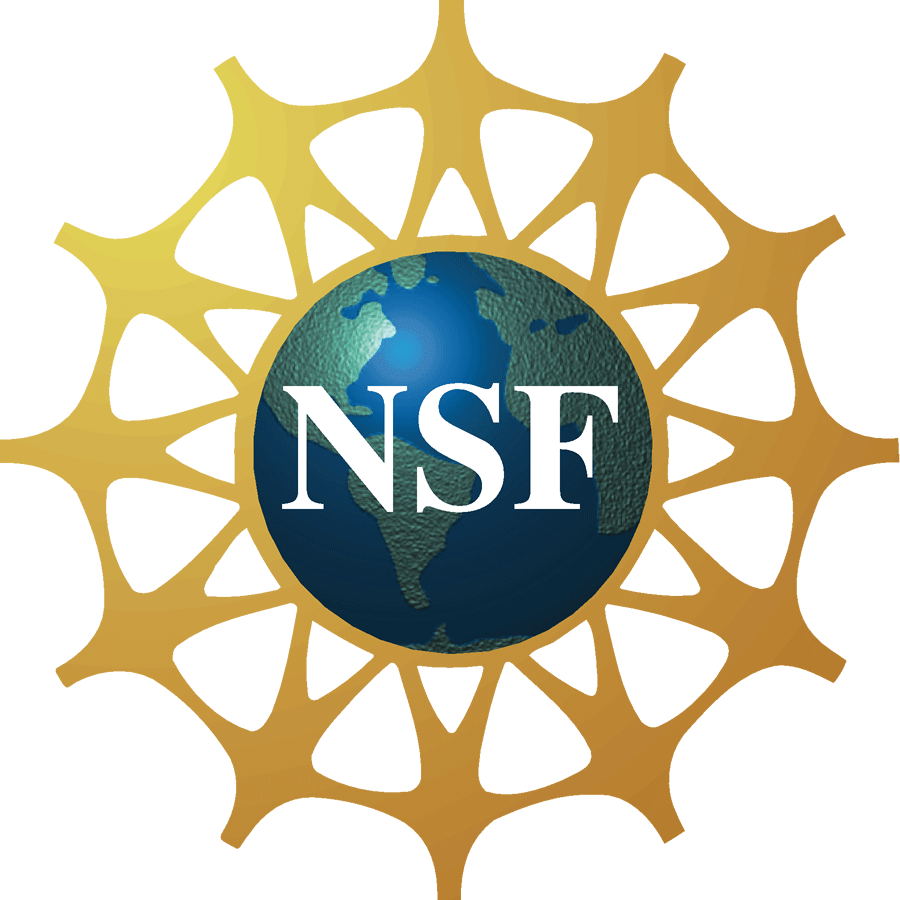Seminars and Panels
Engineering Success and Failure on 9/11
Professor Sarah K. A. Pfatteicher |
Apr 27, 2012 |
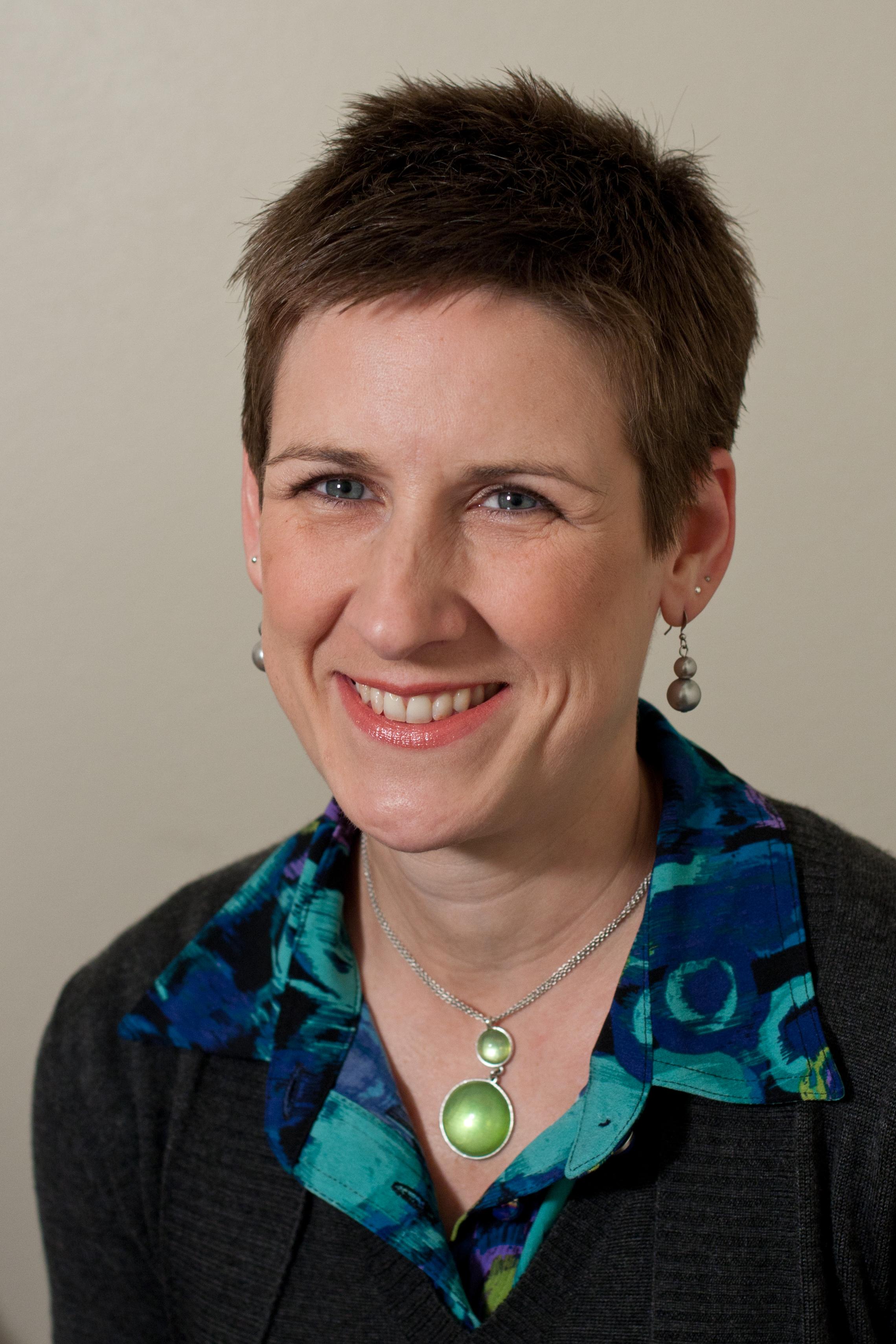
On the second Tuesday of September 2001 the Twin Towers of the World Trade Center returned to dust, taking with them some 2700 souls. A disaster of such magnitude asks us to explore our beliefs -- about religion, surely, but also about politics and social systems, and even about technology. Put simply, catastrophes such as the collapse of the Twin Towers can teach us not only about the construction of buildings, but about the structure of engineering itself.
The challenge in responding to any disaster is to move past shock and dismay and toward a productive resolve. The engineering profession faced special challenges as its members struggled to come to terms with the unprecedented collapse of these two engineering marvels. Should the towers be praised for how long they remained standing or should the focus be on the fact of their ultimate demise? Did it matter that the tower builders and the tower destroyers both drew on their training in architecture and engineering? Would it be more appropriate and constructive to view the towers’ collapse as an unpredictable calamity or as a preventable outcome? And looking to the future, what does it mean for an engineer to act ethically in a post-9/11 world?
The struggle to find answers to such questions provides a means for exploring the purposes, goals, and responsibilities of the American engineering profession. This spectacularly unique disaster highlights engineering as an endeavor that is interconnected, complex, ambiguous, passion-filled, messy, people-oriented, and ultimately, hard. To grasp such complexities is not a sign of indecisiveness, but rather an indication of sophisticated understanding that characterizes what Twin Towers designer Leslie Robertson called the “very imperfect process” of engineering practice.
About Professor Sarah K. A. Pfatteicher
Dr. Sarah Pfatteicher is Interim Associate Dean for Academic Affairs in the College of Agricultural and Life Sciences at the University of Wisconsin-Madison where she is also Research Professor of Civil and Environmental Engineering and a member of the Holtz Center for Science and Technology Studies.
Her research emphasis is in engineering ethics and education, and disaster prevention and response. Both of these topics are covered in her recent book, Lessons Amid the Rubble: An Introduction to Post-Disaster Engineering and Ethics (The Johns Hopkins University Press, 2010).
Dr. Pfatteicher serves on multiple boards, including the Board of Directors for the National Institute for Engineering Ethics, the Ethics Advisory Board for the Wisconsin Institutes for Discovery, and the Chair’s Advisory Council for the Inter-College Ethics Bowl. She received the American Society for Engineering Education’s 2009 Olmsted Award for contributions to the liberal arts within engineering.
Dr. Pfatteicher earned her bachelor’s degree in physics and mathematics from Smith College and master’s and doctoral degrees in the history of science from the UW-Madison.
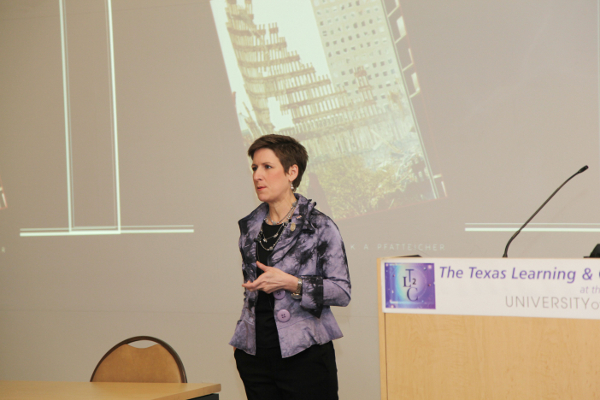
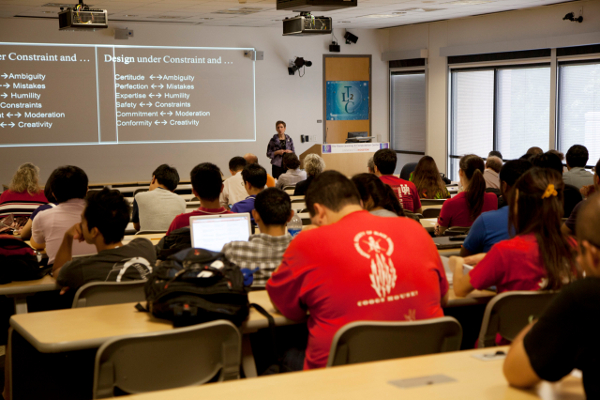
Audience Reception |
n = 48 |
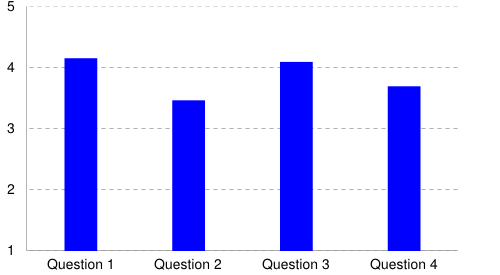
Question 1 - How interesting was the topic to you?
Question 2 - How relevant was the topic to your interest and field of research?
Question 3 - How would you rate the quality of the presentation?
Question 4 - How would you rate the quality of the audience's interaction with the speaker?
Selective Comments
"I liked the stories, ethics, and extra nuggets that stuck all through the presentation."
"She is extremely clear about everything from 9/11. I loved the talk!!!"
- 2017 - 2018
- 2016 - 2017
- Behavioral Concepts and the Sciences of Human Behavior
H. Longino Apr 21, 2017 - Insane Asylums and Genetics: How Human Heredity Became a Data Science
T. Porter Feb 17, 2017 - The Nature of Pride: The Emotional Origins of Social Rank
J. Tracy Jan 23, 2017
- Behavioral Concepts and the Sciences of Human Behavior
- 2015 - 2016
-
Public Ethics, Politics and Sociobiology
M. P. Sheldon Mar 11, 2016 -
Classifying People by Color: How Racial Categories Change Over Time
A. A. Martinez Feb 29, 2016 -
The Origin of Social Impulse: E.O. Wilson's Recent and Controversial Rejection of Kin Selection in Historical Context
A. Gibson Dec 4, 2015
-
Public Ethics, Politics and Sociobiology
- 2014 - 2015
-
Special Event: Lone Star History of Science Meeting Writing the Origin with Burned Fingers: Darwin's Penance for the "Sin of Speculation"A. Sponsel Apr 3, 2015 - Welfare, Work, and Witness: Why Clinical Research Can Survive the Death of a Healthy Human Subject
L. Stark Apr 3, 2015 - The Distinctive Significance of Systemic Risk
A. James Mar 6, 2015 - The Devil's Heritage: Masuo Kodani, the "Nisei Problem," and Social Stratification at the Atomic Bomb Casualty Commission in Japan (1946-1954)
V.B. Smocovitis Jan 28, 2015 - Atypical Combinations and Scientific Impact
B. Uzzi Dec 8, 2014 - Psychology of Science and Technology
M. Gorman Nov 17, 2014 - How Economics Shapes Science
P. Stephan Sep 10, 2014
-
- 2013 - 2014
- The Decision to Put David Vetter in the Bubble
J. H. Jones Apr 16, 2014 - Ethical Paradoxes of
Control: Science, Engineering, and the Expansion of Moral ResponsibilityR. Hollander Mar 3, 2014 - 'Broken Symmetry': Humanism, Militarism, and the Dilemmas of Scientific Identity in Nuclear Age America.
J. Wang Feb 17, 2014 - Using Creative Non-Fiction in Teaching Research Ethics
C.M. Klugman Dec 2, 2013 - Does Neuroscience Undermine Responsibility?
W. Sinnott-Armstrong Nov 15, 2013 - Arming Mother Nature: The Birth of Catastrophic Environmentalism
J. Hamblin Oct 18, 2013
- The Decision to Put David Vetter in the Bubble
- 2012 - 2013
- Lead Wars: the Politics of Science and the Fate of America's Children
D. Rosner Mar 25, 2013 - Identifying potential pitfalls in the quantitative appraisal system for scientific careers
A.M. Petersen Dec 3, 2012 - Keeping Secrets: Scientists' strategic management of militarization, 1945-1980
S. Lindee Nov 12, 2012 - Evolutionary Theory as Methodological Anesthesia: Methodological and Philosophical Lessons from Evolutionary Psychology
R.N. Boyd Oct 19, 2012 - Panel on Peer-Review Issues
Oct 11, 2012
- Can technology enable cities to cope with the economic winter?
A. Hampapur Sep 21, 2012
- Lead Wars: the Politics of Science and the Fate of America's Children
- 2011 - 2012
- Engineering Success and Failure on 9/11
S.K.A. Pfatteicher Apr 27, 2012 - Regulating Ionizing Radiation: Flawed Standard, Flawed Ethics
K.S. Frechette Mar 5, 2012 - Do fish feel pain?
C. Allen Jan 25, 2012 - The Ethics of Relevancy
J. Levine Dec 13, 2011 - ORI Cases and How to Protect Yourself from Research Misconduct in Your Labratory
A.R. Price Nov 7, 2011
- Engineering Success and Failure on 9/11











